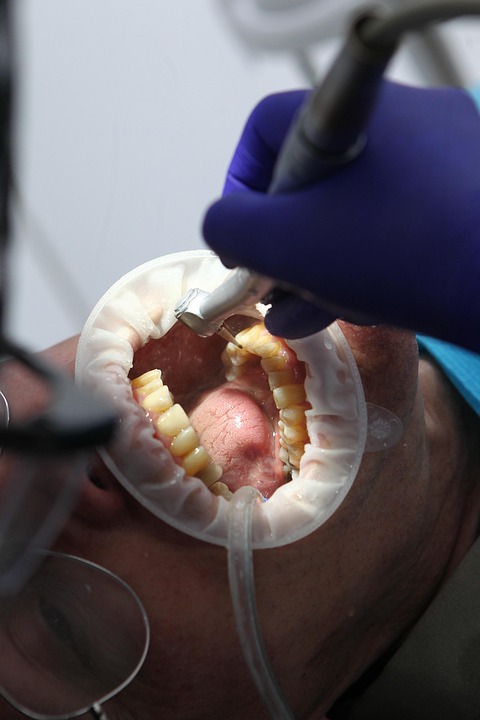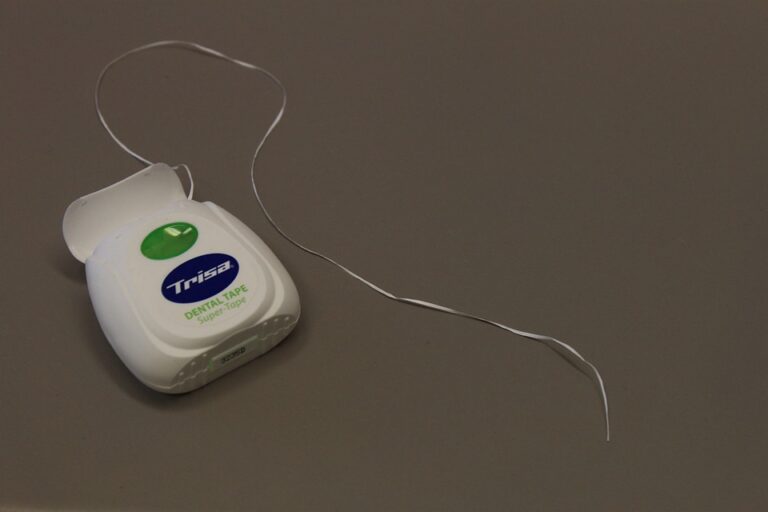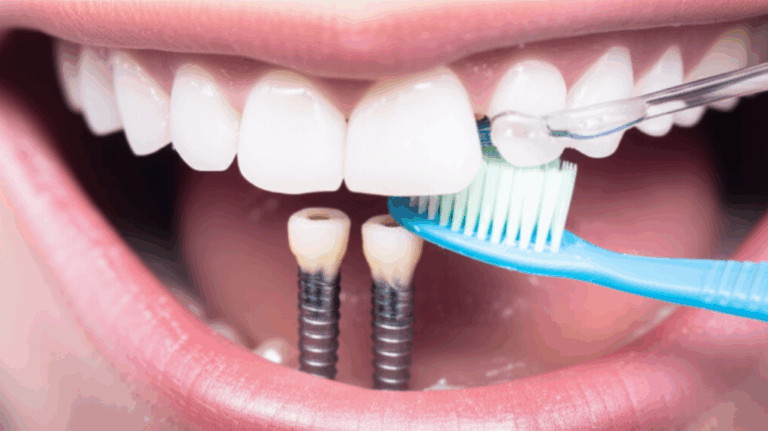
Can Dental Problems Cause Stomach Problems? A Simple Guide to the Mouth-Gut Connection
That annoying toothache or sore gums isn’t just stopping you from eating your favorite foods; it could be causing your stomach troubles, too. If you’ve ever asked, “Can dental problems cause stomach problems?”—you’re not the only one. Lots of people think mouth health problems are small, but really, your mouth and your gut talk to each other more than you think.
Let’s take a look at why keeping your teeth healthy is really about more than just having a nice smile. We’ll break down how issues with your teeth can turn into stomach problems, explain how it all works in plain English, and give you tips to feel better from head to toe.
Table of Contents
- The Surprising Link Between Your Mouth and Gut
- How the Oral-Gut Axis Works
- How Dental Issues Impact Digestion
- Dental Problems and Their Stomach Connections
- What Symptoms Should You Watch For?
- When (and Why) You Should See a Professional
- Prevention and Management Tips
- Your Healthy Takeaway
The Surprising Link Between Your Mouth and Gut
You might wonder, “Can my gums really make my stomach hurt?” Yes—they can, and it happens more than you might guess. Your mouth is the front door to your digestive system, and whatever goes on in there—good or bad—can affect the rest of your body.
A tooth infection isn’t just a little problem in one spot. Bad germs and long-term swelling in your mouth can move or signal your gut, leaving your stomach upset. For some people, ongoing dental trouble can start or make stomach problems worse, like indigestion, bloating, or ongoing digestive diseases.
So, if your stomach’s bothering you along with your mouth, you might be onto something.
What We’ll Cover
- How your mouth and gut send messages to each other
- The main ways dental troubles upset your stomach
- Which mouth problems can mess up your belly
- Signs you should look out for
- Steps to keep both your teeth and tummy happy
How the Oral-Gut Axis Works
If you’ve heard about the “gut-brain axis”—how your thoughts and tummy are chatting all the time—think of the mouth-gut axis as a two-way street linking your mouth right to your stomach. Here’s how it works:
Your mouth is the door in. Chewing is step one for breaking down food, and your spit (saliva) helps start digestion before food even reaches your stomach.
Bacteria live everywhere. Both your mouth and gut have tons of bacteria—some are good, some are bad. In a healthy body, they’re balanced. When you have mouth infections or don’t clean your teeth well, bad germs can get out of control and mess up the bacteria in your gut.
Inflammation spreads. Swollen gums (maybe from gum disease) don’t just stay in your mouth. They send out warning chemicals in your blood, which can reach your gut and other organs too.
An Analogy
Imagine your digestive system like a highway. If there’s a car pile-up at the beginning (your mouth), traffic slows down everywhere, leading to more problems down the road!
How Dental Issues Impact Digestion
So, how does a mouth problem end up causing a stomach problem? Here are the main ways:
1. Bacterial Migration: Swallowing Trouble
Every time you swallow, you’re not only sending down food—you’re also sending mouth bacteria into your stomach.
- Gum disease, untreated cavities, or an abscess make a great home for bad germs.
- When you swallow these, they can upset the natural germs in your gut (this is called “dysbiosis”).
- This can raise your chances of tummy bugs, bloating, diarrhea, or even things like SIBO (where too many bacteria grow in your small intestine).
2. Systemic Inflammation: When Your Body Sounds the Alarm
Swollen gums—whether called gingivitis or periodontitis—send “help!” signals (inflammation) through your blood.
- This widespread swelling can weaken your gut lining, which people sometimes call “leaky gut.”
- What happens? More food pieces and germs can slip through, making your immune system go on alert. You might get bloating, cramps, diarrhea, or even long-lasting digestive problems.
3. Trouble Chewing: When Eating Hurts
- If you have missing or sore teeth, dentures that don’t fit, or jaw pain (TMJ), chewing doesn’t work very well.
- Not chewing enough means bigger pieces of food go into your tummy, which makes it harder to digest and hurts your stomach.
- This can lead to indigestion, gas, or not getting enough nutrients from your food—leaving you feeling tired.
4. Side Effects from Dental Treatments
- Sometimes you need antibiotics for tooth infections, but these can kill both good and bad bacteria in your gut.
- Having less good bacteria can lead to diarrhea, cramps, or just feeling “off.”
5. Dietary Changes: Eating Around Your Mouth Pain
- When your mouth hurts, you might skip healthy crunchy veggies or meats and just eat soft foods or plain bread.
- Over time, this kind of diet can make your body miss key nutrients and make your gut less healthy.
Want to learn more? Check out our resource on oral health and feeling good all over.
Dental Problems and Their Stomach Connections: Key Examples
Let’s see how certain mouth problems connect to stomach issues:
Gum Disease (Gingivitis and Periodontitis)
- Big risk: People with gum disease have a higher chance of stomach troubles, even things like Inflammatory Bowel Disease (IBD).
- Why: Certain mouth germs like Porphyromonas gingivalis can make gut inflammation worse. Studies show gum disease makes you more likely to have ongoing heartburn, indigestion, IBS, and even ulcers.
Cavities, Dental Infections, and Abscesses
- A cavity is more than a sore spot—it’s a perfect place for bad germs to live. Swallowing these germs can cause stomach pain, nausea, or more body-wide swelling.
- A tooth abscess can even cause fever, belly pain, or just make you feel really bad if the infection spreads.
Missing or Damaged Teeth
- Ever tried to eat an apple with a sore tooth? Most people just give up. Skipping fiber-rich foods can make you constipated, tired, or gassy. Over time, not chewing right can lead to poor digestion and missing key nutrients.
Oral Thrush (Candidiasis)
- White patches in your mouth can mean you have too much Candida (a kind of yeast). If it spreads or you have a weak immune system, you might get too much yeast in your gut too, which brings bloating, discomfort, or even diarrhea.
Teeth Grinding (Bruxism) and TMJ Problems
- If you grind or clench your teeth (maybe from stress), your mouth pain can get worse—and so can your gut. Stress is tough on your tummy, making things like IBS or gastritis act up.
For more details on dental diseases and their effects on your health, check out our other guide.
What Symptoms Should You Watch For?
It’s not always easy to see the mouth-gut link. Look for these clues:
- Indigestion or heartburn that doesn’t go away with your go-to fixes.
- Chronic bloating, gas, or tummy pain without a clear food cause.
- Upset stomach, feeling sick or queasy after eating.
- Ongoing changes in your poo—like unexplained diarrhea or constipation.
- Mouth pain, bleeding gums, or sores plus stomach problems.
- A sudden rise in bad breath that comes with stomach upset.
If you check more than one box, don’t just blame your food or stress—your teeth might be part of the problem.
When (and Why) You Should See a Professional
Sometimes, you can’t fix it at home. Here’s when it’s time to get help:
When to Book a Visit
- Mouth pain, bleeding, loose teeth, or swelling that’s lasted more than a week.
- Stomach issues like nausea, bloating, or changes in your poo that don’t get better or make sense.
- Remedies from the store aren’t helping, or things are getting worse.
Who to See
- Dentist: Your first stop for a checkup, cleaning, or fixing dental problems. They’ll look for infections, gum disease, or other problems and help you clean up your habits.
- Gastroenterologist: If your gut keeps acting up, see a tummy doctor. They can test your gut germs or look for deeper digestive trouble.
What to Expect
- Dental exam: Your dentist checks for infections, gum disease, and cavities.
- Pictures: Dental X-rays can show hidden problems.
- Gut health tests: Some specialists will check your gut germs, especially if you have mouth and stomach issues.
Prevention and Management Tips
Here’s an easy plan to keep both your teeth and your gut doing well.
1. Take Care of Your Mouth Every Day
- Brush twice a day with fluoride toothpaste.
- Floss every night—seriously, don’t skip it!
- Rinse with mouthwash, especially if you have gum problems.
- Try a tongue scraper to get rid of extra germs.
2. Visit Your Dentist Regularly
Get your teeth cleaned to catch gum disease early and clear away tough plaque (plaque is like “cement” for germs). Dentists can find loose fillings, dentures that don’t fit, or early infections before they affect your belly. Looking for high-level work? Consider a trusted crown and bridge lab or removable denture lab.
3. Fix Dental Problems Quickly
Don’t wait out a toothache, bleeding gums, or mouth sores.
- Fill cavities before they get worse.
- Take care of gum disease—your dentist can do deep cleaning (“scaling”).
- Get painful or missing teeth fixed so chewing and digestion work better.
4. Eat Well for Your Teeth and Stomach
- Load up on fiber: Crunchy fruit and veggies help clean your teeth and feed gut germs.
- Cut down on sugar and sour snacks: Fewer cavities and less swelling.
- Mix up what you eat: A wide range of foods gives you healthy germs in your mouth and gut.
- Try probiotics: Some studies say special oral lozenges and food or pill probiotics help balance germs after you’ve taken antibiotics or had an infection.
5. Watch Your Habits
- Drink lots of water—it washes away crumbs and helps make saliva.
- Manage your stress. It helps both mouth and gut.
- Avoid smoking and heavy drinking—they’re hard on both teeth and belly.
6. Get Restorative Work if Needed
Got dentures, night guards, or dental implants? Make sure they fit right so chewing is easy. Trouble? Ask your dentist about your options. For custom work, try a top dental ceramics lab for natural-looking fixes.
Need advanced care? Visit a good digital dental lab for modern treatment options.
Your Healthy Takeaway
Here’s the key stuff to remember:
- Your mouth and gut are connected. Mouth problems can often cause or make stomach problems worse.
- Signs to watch out for: Indigestion, bloating, heartburn, or changed bathroom habits, especially if you also have mouth pain or bleeding gums.
- What to do: Fix mouth problems quickly, keep up with brushing and flossing, eat a healthy and varied diet, and see a dentist and doctor if you have ongoing trouble.
- Take charge. Your feelings aren’t imaginary—good dental care can make your whole body work better.
Bottom Line: If you’re stuck in a loop of mouth pain and tummy troubles, don’t just live with it. Even one small step—a good dental check-up—can turn things around for your comfort, energy, and whole-body health.
Action Step: Smile bright, eat well, and give your mouth the care you’d give any other important part of you. If you’re unsure, ask for help—you’re in control.
###### Medically reviewed by Add Credentialed Dentist Here]. For more whole-body dental advice, see our guides on [teeth information and dental care and looks.
References:
- American Dental Association (ADA)
- Mayo Clinic
- Journal of Oral Microbiology
- Gut (BMJ Journals)
- Recent clinical studies on the oral-gut axis and body-wide inflammation








